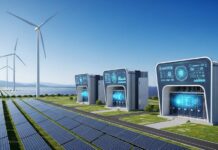One of a hydrogen demonstration facility has been launched in Austin, Texas, US, which will offer power to the Texas Advanced Computing Center (TACC) data center by way of a fuel cell.
This project, which happens to be located at the UT- University of Texas’ J.J. Pickle Research Campus within Austin is a collaboration between GTI Energy as well as its subsidiary Frontier Energy which is the UT Centre for Electromechanics and also almost 24 sector stakeholders.
It happens to be a part of the US Department of Energy- DoE’s H2@Scale initiative, which has been designed as a model for large-scale hydrogen development in the future, thereby showcasing an integrated hydrogen ecosystem when it comes to production, distribution, storage, as well as usage.
It is well to be noted that the site is expected to generate hydrogen by way of using water electrolysis which will be powered by solar as well as wind energy, and also steam reformation through natural gas from landfills.
As per the University of Texas, the primary end user is going to be TACC via a stationary cell power system, which will go on to offer energy to the data center. The hydrogen site is also going to fuel a Toyota Mirai fuel-cell electric vehicle fleet and also fuel-cell drones.
Apart from the present project, the hydrogen facility is also well positioned when it comes to growth as well as have an impact when it comes to the clean hydrogen industry, which is in every way emerging.
According to research scientist at the UT Austin Center for Electromechanics, Michael Lewis, H2@Scale in Texas happens to build on almost two decades of UT leadership when it comes to hydrogen research and development. Due to this facility, they look forward to offering an educated workforce as well as the engineering data that is required for success.
TACC, which was founded in 2001, happens to host many supercomputers such as Stampede3, Frontera, Lonestar6, JetStream2, and Maverick2. The company went on to recently announce its plans for an Nvidia-based cluster called Vista.
The DoE’s H2@Scale project looks forward to developing and demonstrating a path to renewable hydrogen as an option for cost effective and clean fuel. Director of the DOE Hydrogen and Fuel Cell Technologies Office as well as hydrogen program coordinator, Sunita Satyapal, opined that they went ahead and launched the H2@Scale initiative with their labs quite a few years ago so as to pave the way for pilot projects that go on to help in the advancement of clean hydrogen innovation along with scale-up.
She added that she was so pleased to witness this project underway so as to help guide future larger-scale clean hydrogen rollouts and also make advancements in America’s clean hydrogen strategy.
The president and CEO, GTI Energy, Paula Gant, said that by way of public-private partnerships, which are enabled by H2@Scale, DOE consistently goes on to build on its role as an accelerator for early-stage research, development as well as demonstrations that are collaborative in nature and also needed when it comes to effective energy system transitions.
Through demonstrating a completely integrated hydrogen ecosystem, H2@Scale happens to be offering a ground for the powerful potential when it comes to large-scale Regional Clean Hydrogen Hubs as far as building a robust hydrogen economy that would go on to benefit local communities is concerned, be it by way of skilled job creation, strengthened energy access, or cleaner air.
As per a recent report, UT noted that Texas happens to be well placed in terms of hydrogen energy, which, as a matter of fact, boasts quite significant existing hydrogen infrastructure, such as over 900 miles of pipelines of hydrogen.
































